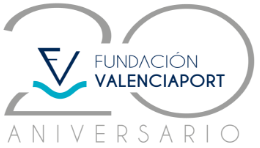Making maritime
shipping
more
sustainable by
optimising port call
efficiency to reduce
emissions and
to
enhance safety
MISSION aims to minimise maritime shipping waiting time in ports to increase efficiency, enhance safety, and decrease port traffic, costs, and emissions.
MISSION is developing an interoperable digital real-time-based optimisation and decision-support tool to provide more coordinated planning and execution of port call operations in terms of time, fuel consumption, environmental impact, and safety spanning the overall maritime supply chain.
Stakeholders benefit from increased transparency and information sharing between shipping companies, terminals, ports, and service providers, which help optimize their resources and capacity planning including port’s hinterland modalities in compliance with the 2006 Maritime Labor Convention – also known as the Seafarer’s Bill of Rights.
Download info sheetDemo Sites
To demonstrate how digital solutions enhance coordination, transparency, and efficiency in maritime logistics, MISSION is implementing five case studies in six major European ports of Valencia (Spain), Piraeus (Greece), Genoa (Italy), Trieste (Italy), Hamina Kotka (Finland), and Klaipeda (Lithuania). These 5 Cases include 6 Demonstration Sites where innovative data-sharing practices and technologies are tested in operational settings. Covering container, RoRo, and bulk shipping, they advance Just-In-Time arrivals, smarter customs processes, and improved port call planning across Europe’s main shipping corridors.
Just
in
Time
Key facts

MISSION’s solution will allow vessels to reduce fuel emissions by 10-20% fuel during port arrival and anchorage.

MISSION will enable shipping companies to quantify their fuel savings and the GHG emissions avoided because of the optimisation system and the real-time information shared with ports during vessel voyage.

MISSION will contribute to UNSDG 13 (Climate Action) & UNSDG 9 (Industry, Innovation, and Infrastructure).

MISSION will increase navigational safety through improved sea traffic management.

By decreasing the waiting time of vessels in ports and port areas, accelerating their operations, and reducing their fuel consumption by 10-20% MISSION will benefit the health and quality of life of near-port communities.

MISSION will develop a full-scale demonstration of an interoperable port call and voyage optimisation tool on existing routes and services involving at least 3 ports and 2 shipping companies and relevant stakeholders in port operations.

MISSION has the objective of developing a unified and standardised toolbox to adhere to when creating further innovative digital solutions in the maritime sector.

MISSION will prove the commercial viability of voyage and port call optimisation to facilitate take up and its application.

Economic gains will derive from an improvement in the efficiency of vessels operations arriving at and departing from ports.

The development of green business models will ensure extensive market penetration and maximise benefits realisation.
































